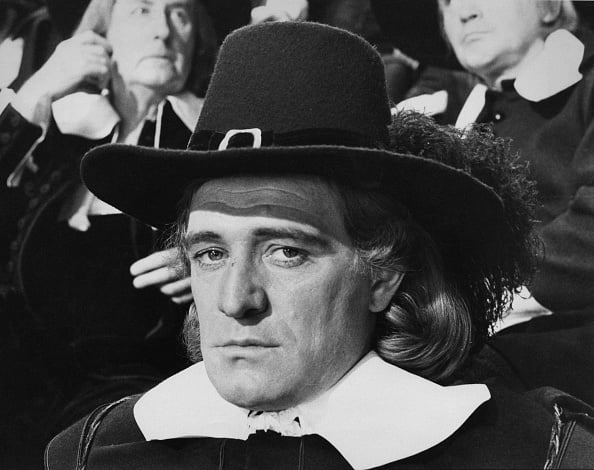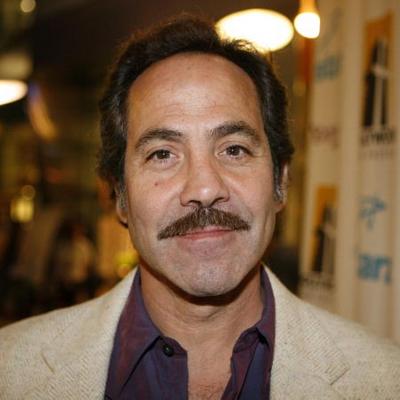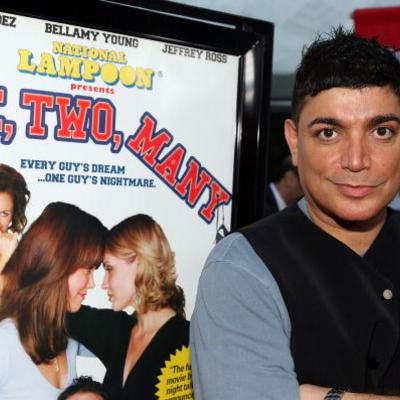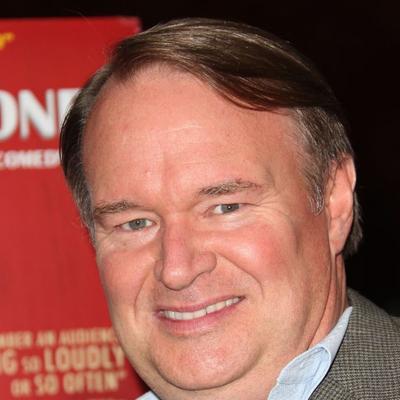What Was Richard Harris' Net Worth?
Richard Harris was an Irish actor, singer, producer, and director who had a net worth of $20 million at the time of his death in 2002. Richard Harris earned Academy Award nominations for the films "This Sporting Life" (1963) and "The Field" (1991), and he won a Golden Globe for his performance as King Arthur in "Camelot" (1967).
He was also known for playing Albus Dumbledore in "Harry Potter and the Philosopher's Stone" (2001) and "Harry Potter and the Chamber of Secrets" (2002). Harris had more than 70 acting credits to his name, including the films "The Guns of Navarone" (1961), "Mutiny on the Bounty" (1962), "Bloomfield" (1971), "Gulliver's Travels" (1977), "Patriot Games" (1992), "Unforgiven" (1992), "Cry, the Beloved Country" (1995), "Gladiator" (2000), and "The Count of Monte Cristo" (2002). Richard also starred in stage productions, such as "Camelot" (1981–1985) at London's Old Vic Theatre and Broadway's Winter Garden Theatre and "Henry IV" (1990) at London's Wyndham's Theatre. He directed the 1970 film "The Hero," and he executive produced the 1976 films "Echoes of a Summer" and "The Return of a Man Called Horse." Harris released several albums as a singer and reached #1 in Canada and Australia with the song "MacArthur Park" by Jimmy Webb. In 2020, "The Irish Times" ranked Richard #3 on its list of "The 50 greatest Irish film actors of all time." Harris passed away on October 25, 2002, from Hodgkin's lymphoma at the age of 72.
Early Life
Richard Harris was born Richard St John Francis Harris on October 1, 1930, in Limerick, Ireland. He was the son of Mildred and Ivan Harris, and his father was a flour merchant. Richard had seven siblings, and the family lived in a home known as Overdale, which was described as "a tall, elegant, early 19th-century redbrick" house that included nine bedrooms. Harris attended the Jesuit school Crescent College, where he played rugby. He was forced to stop playing the sport after he caught tuberculosis. After his recovery, Richard relocated to Great Britain with hopes of becoming a director, but he couldn't find a suitable training course, so he began studying acting at the London Academy of Music and Dramatic Art. As a student, he rented the Irving Theatre, a small "off-West End" performance space, and directed a production of Clifford Odets' "Winter Journey (The Country Girl)." Harris later became involved with Joan Littlewood's Theatre Workshop and began appearing in West End productions such as "The Quare Fellow" (1956).
Career
Richard's first film was 1959's "Alive and Kicking," and he followed it with "Shake Hands with the Devil" (1959), "The Wreck of the Mary Deare" (1959), "A Terrible Beauty" (1960), "The Guns of Navarone" (1961), "The Long and the Short and the Tall" (1961), "Mutiny on the Bounty" (1962), "Red Desert" (1964), "The Bible: In The Beginning" (1966), and "Caprice" (1967). He earned his first Academy Award nomination for 1963's "This Sporting Life," and he won a Golden Globe for playing King Arthur in 1967's "Camelot." In the '70s, Harris starred in the title role in "Cromwell" (1970) and "Gulliver's Travels" (1977) and appeared in films such as "Man in the Wilderness" (1971), "Juggernaut" (1974), "Echoes of a Summer" (1976), "Robin and Marian" (1976), "The Return of a Man Called Horse" (1976), "Golden Rendezvous" (1977), "The Wild Geese" (1978), and "Game for Vultures" (1979). Next, Richard starred in "The Number" (1980), "Tarzan, the Ape Man" (1981), "Your Ticket Is No Longer Valid" (1981), "Triumphs of a Man Called Horse" (1982), "Highpoint" (1984), "Martin's Day" (1985), and "Strike Commando 2" (1988).

Getty
Harris played the lead role in the 1993 TV movie "Abraham," and around this time, he appeared in the films "Mack the Knife" (1990), "The Field" (1991), "Patriot Games" (1992), "Unforgiven" (1992), "Cry, the Beloved Country" (1995), "Trojan Eddie" (1996), "Savage Hearts" (1997), and "Grizzly Falls" (1999). In 2000, he portrayed Marcus Aurelius in "Gladiator," which grossed $503.2 million at the box office and won an Academy Award for Best Picture. Richard appeared in "The Pearl" (2001), "My Kingdom" (2001), and "The Count of Monte Cristo" (2002), and he played Professor Albus Dumbledore in 2001's "Harry Potter and the Philosopher's Stone" and 2002's "Harry Potter and the Chamber of Secrets." "Harry Potter and the Philosopher's Stone" brought in $1.017 billion at the box office, and "Harry Potter and the Chamber of Secrets" earned $879.8 million. "Harry Potter and the Chamber of Secrets" ended up being the last film Richard appeared in, though he lent his voice to the 2003 computer-animated film "Kaena: The Prophecy." He also posthumously appeared in the 2003 TNT miniseries "Julius Caesar."
Personal Life
On February 9, 1957, Richard married Elizabeth Rees-Williams, the daughter of 1st Baron Ogmore David Rees-Williams. They welcomed three children, Jared Harris, Jamie, and Damian, before divorcing in 1969. Damian is a director, and Jared and Jamie are actors. Jared won a Screen Actors Guild Award as a member of the "Mad Men" cast in 2009; he played Lane Pryce on the critically-acclaimed series. After the divorce, Richard married actress Ann Turkel, and Elizabeth married Academy Award-winning actor Rex Harrison. Harris and Turkel divorced in 1982. In the '60s and early '70s, Richard was known for being a hellraiser and a heavy drinker, but he gave up alcohol in the early '80s. He began drinking Guinness again a decade later. In 1978, Harris almost died of a cocaine overdose, leading him to give up drugs.
Death
After he was hospitalized with pneumonia in August 2002, Richard was diagnosed with Hodgkin's disease. On October 25, 2002, he passed away at London's University College Hospital at the age of 72 after three days in a coma. After Harris was cremated, his ashes were scattered at his home in the Bahamas. In 2006, a bronze statue of 18-year-old Richard playing racquetball was placed in Kilkee, County Clare, Ireland. He had won a local racquetball competition several times in the '40s. A statue of Harris as King Arthur was erected in his hometown, Limerick.
Awards and Nominations
Harris received two Academy Award nominations for Best Actor in a Leading Role, for "This Sporting Life" in 1964 and "The Field" in 1991. "This Sporting Life" also earned him Best Actor awards at the Cannes Film Festival and New York Film Critics Circle Awards as well as a BAFTA Award nomination. In 1972, Richard received a Primetime Emmy nomination for Outstanding Single Performance by an Actor in a Leading Role for "The Snow Goose." He won a Golden Globe for Best Motion Picture Actor – Musical/Comedy for "Camelot" in 1968 and earned a nomination for Best Actor in a Motion Picture – Drama for "The Field" in 1991. Harris received four Grammy nominations, winning Best Spoken Word Recording for "Jonathan Livingston Seagull" in 1974. His other nominations were for Best Contemporary Pop Vocal Performance, Male for "MacArthur Park" (1969), Album of the Year for "A Tramp Shining" (1969), and Best Spoken Word Recording for "The Prophet" (1975).
In 2002, he was posthumously honored with the Richard Harris Award at the British Independent Film Awards, and he earned a nomination for Best Actor for "My Kingdom." In 2000, Richard shared a Screen Actors Guild Award nomination for Outstanding Performance by the Cast of a Theatrical Motion Picture with his "Gladiator" co-stars. He also earned CableACE Award nominations for Actor in a Theatrical or Musical Program for "Camelot" (1983) and Actor in a Movie or Miniseries for "Abraham" (1995). Harris received Lifetime Achievement Awards from the European Film Awards (2000), Wine Country Film Festival (2000), and Empire Awards (2001), and he won the London Critics Circle Film Awards' Dilys Powell Award in 2001.
Real Estate
In 1968, Harris purchased William Burges' Tower House in London for £75,000 after he found out that Liberace wanted to buy the home but hadn't put a deposit down yet. He hired Campbell Smith & Company Ltd., the home's original decorators, to do restoration work on the interior of the Grade I listed building. Led Zeppelin guitarist Jimmy Page bought the home from Richard in 1972.








